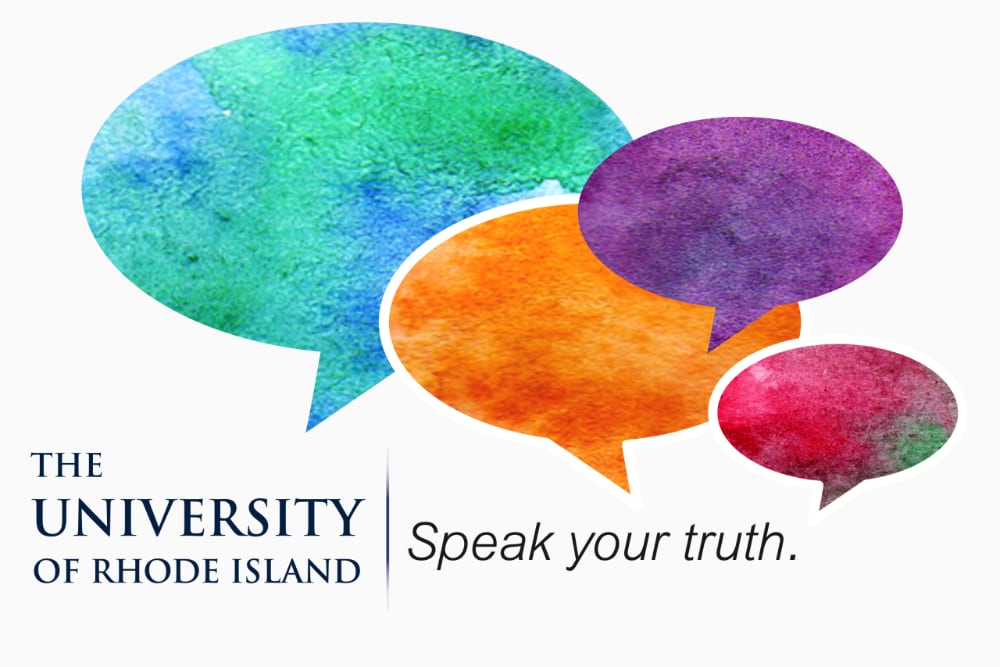Micro-credential, Diversity Dialogues educate community
To encourage a more diverse community on campus, Dialogues on Diversity are being implemented for both students and faculty. PHOTO CREDIT: uri.edu
The University of Rhode Island is trying to do its part to amplify diversity in the community among both students and faculty, according to Mary Grace Almandrez, URI’s associate vice president of Community, Equity and Diversity (CED) and chief diversity officer.
This comes after the release of the results of URI’s Campus Climate Survey. The survey, which was distributed in March 2021, released its results this past October. The results revealed many shortcomings on the University’s behalf, according to the survey, especially in regards to minority communities.
One of the ways that URI is working on these shortcomings is through implementing a social justice and inclusion micro-credential. This four-week program is designed for faculty and staff, and is equivalent to the Diversity Dialogues events that are available for undergraduate students.
Diversity Dialogues is a program that was created in collaboration with URI Greek Life and is offered in URI 101, as well as in URI’s Inclusion Task Force, according to Safie Sagna, a program coordinator in the Community, Equity and Diversity Department.
The social justice and inclusion micro-credential is available to faculty and staff. According to Sagna, the program was created in the fall 2020 semester as a result of the Black Lives Matter Movement in the summer of 2020.
“This program that we’re doing is about giving people and individuals tools to make changes,” Sagna said.
The micro-credential contains four modules, or sessions, with the first module titled “Developing Critical Consciousness.” According to Sagna, this allows for the learners to start the process of critical thinking in order to understand concepts in the next three modules to the best of their abilities.
“I really tailor these sessions around reflection,” Sagna said. “I don’t want it to be about lecturing because you can only remember 7 percent of what you’ve heard during a lecture.”
This module also not only introduces the importance of diversity but also talks about the benefits it can have in the workplace. However, Sagna said that this also introduces issues because of the difficulties that can be caused by trying to understand people of all different backgrounds and make them feel comfortable. This module also discusses the idea of social justice so that participants can define it.
“Social justice seeks to remove all barriers for individuals,” Sagna said. “Until we get that social justice, practices of equity and inclusion could help go a long way.”
Module two is “Understanding Social Identity Power and Privilege.” Sagna said that social identities are determined by the society we are in because of social categorization, such as race and gender. Understanding one’s own social identity will help them recognize their own privileges, and will therefore help to create a more inclusive environment through more deeply understanding the changes that need to be made, whether it’s in work, school or a social setting, according to her.
Sections two and three also introduce the term implicit bias, which are the unconscious biases everyone has that stem from their upbringing and background.
“It’s a complex term [that] happens to all of us,” Sagna said. “It’s like a fog and everybody’s bracing it. It’s in the air. We all have implicit bias based on our social identities.”
The fourth and final module deals with microaggressions. According to Sagna, microaggressions are defined as verbal and non-verbal indignities at the individual level that are targeted at non-dominant groups.
Almandrez said that microaggressions are a topic that students have asked the University to tackle as a primarily white institution.
“It’s not like it just came out of the blue,” she said. “Students think that there are microaggressions in the classroom and that sometimes the curriculum isn’t very diverse and doesn’t include different perspectives. Students have said in their advising and mentoring they would appreciate different kinds of dynamics with their faculty.”
According to both Sagna and Almandrez, faculty and staff members can receive a certificate after completing all four modules in the program. They also both said that they highly recommend this program, as well as the complimenting Diversity Dialogues program for students to tackle these issues head-on in the community.
“It’s always important for us to model a commitment to social justice,” Almandrez said. “I wouldn’t want to ask my students to do a Diversity Dialogues workshop if I myself haven’t gone through training.”
The next installment of the social justice and inclusion micro-credential is taking place for faculty this April. For more information on the Diversity Dialogues, students can reach out to the Community, Equity, and Diversity (CED) department at [email protected].

